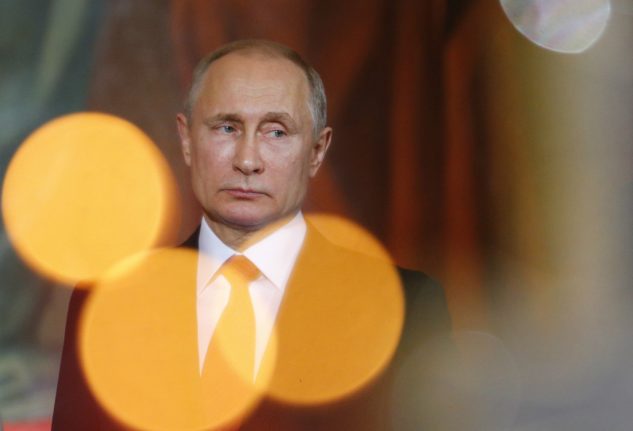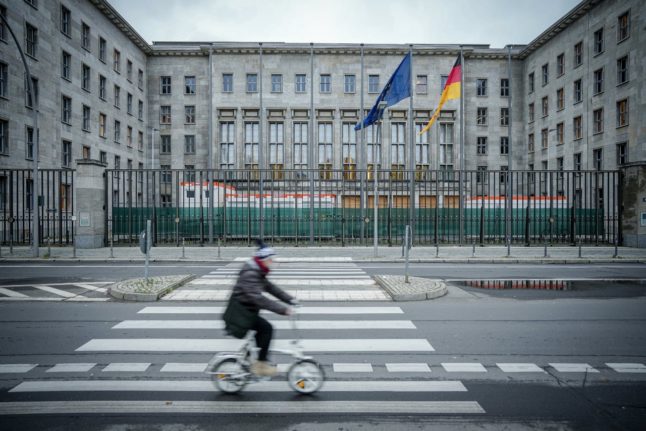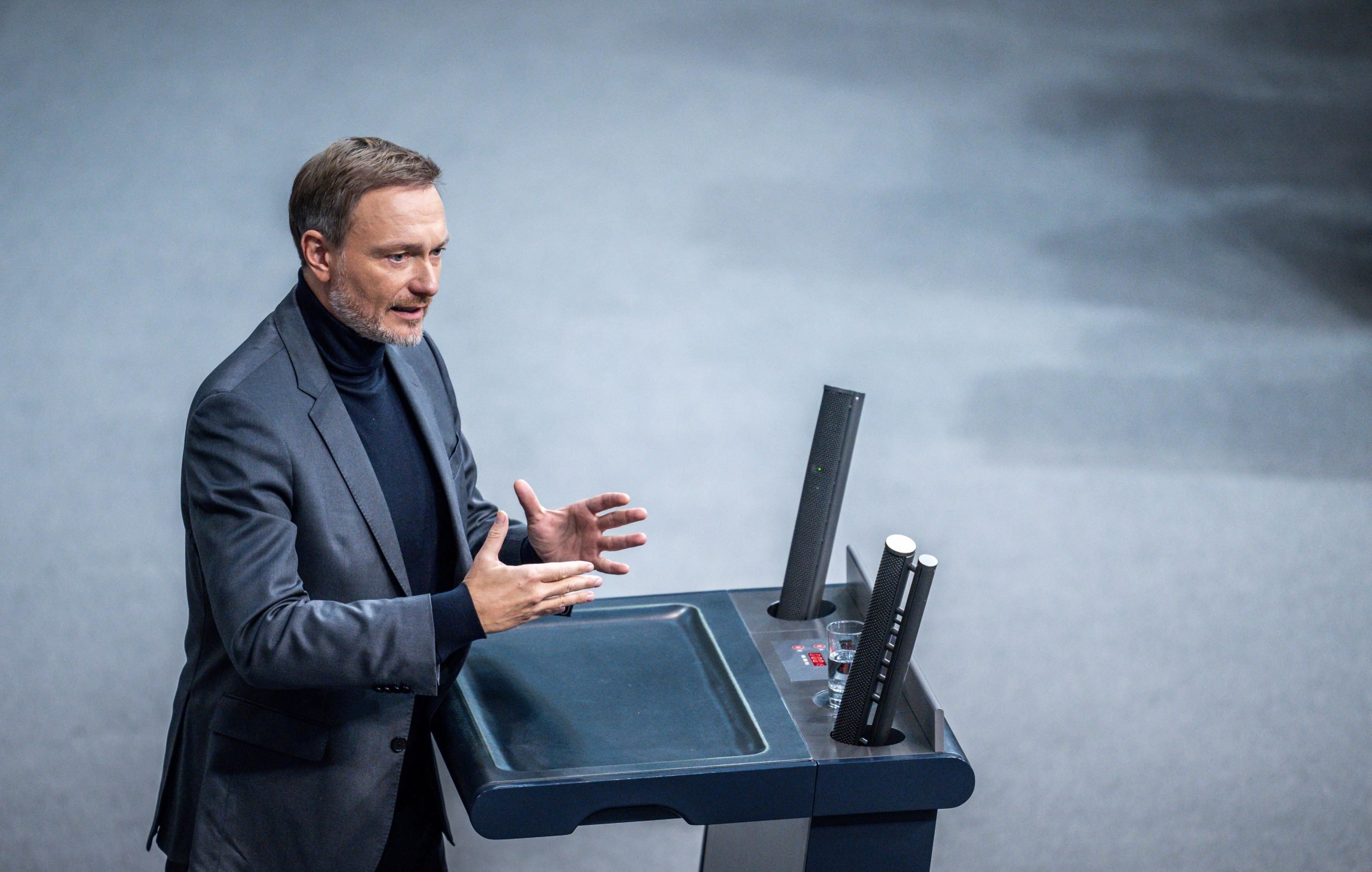This article is available to Members of The Local. Read more Membership Exclusives here.
On the way into the office on Friday, I peered over my neighbour’s shoulder on the U-Bahn to see him reading the latest issue of a mainstream German news magazine.
“After British scientists confirmed they were unable to pinpoint the source of the nerve agent in the Skripal attack, voices are growing in the SPD and CDU questioning the British version of events,” the magazine noted, before adding “there is however much evidence that points to Russian involvement.”
Not for the first time in recent weeks, I felt that sinking feeling in seeing how Germans discuss the poisoning of ex-spy Sergei Skripal in the UK in March.
“Much evidence” seemed like a rather kind way of describing the case against Moscow. But, given how the German media have reported the case up till now, I wasn't surprised.
Just as predictable was the fact that even members of the governing Christian Democrat (CDU) and Social Democrat (SPD) coalition had started to play to the crowd by claiming that the question of culpability was up in the air.
- Why is German public reluctant to back UK over 'Russian' nerve agent attack?
- Russia has secret novichok programme, British ambassador to Berlin claims
- Germany to expel four Russian diplomats over UK spy attack
I am British and therefore (perhaps) biased, but it seems to me to be pretty obvious that Russia was behind this attack. They have previously assassinated at least one former Russian spy on British soil. They support Syria using chemical weapons against its own people. The poison used in the attack on Skripal has been confirmed by independent experts as being a Soviet nerve agent. I'm going to go out on a limb and say the British appraisal that Russian involvement is “highly likely” is a reasonable one.
But, if you are German, you seem to work according to a completely different rationale.
On German television on Thursday evening, a pundit put forward a different logic for the Skripal attack.
If Russia did order the attack then they broke a gentleman’s agreement on spy swapping, whereby you don’t hit a spy who you have handed over to the enemy, the pundit explained. In that case other states would stop swapping spies with them. And if other states stopped swapping spies, nobody would want to join Russian intelligence anymore. Thus, Putin would have been a fool to order the attack.
This unusual opinion was not to be found on Russia Today Deutsch – it was in fact aired on ZDF, one of Germany's two main public broadcasters. And the man behind the convoluted theory was Gregor Gysi, a high profile left-wing politician.
I wish I could say that Gysi is a lone wolf, but that simply wouldn't be true. Three of the parties in the German parliament have tried to claim that the West has jumped to conclusions on the Skripal affair and is deliberately escalating conflict with Russia.
The German media meanwhile, made headline news out of a statement by British scientists that they could not say definitely who made the nerve agent used against Skripal. But they were strangely quiet on Thursday when the Organisation for the Prohibition of Chemical Weapons confirmed that the agent was a Soviet-designed poison called novichok.
Many Germans unwittingly parrot Russian propaganda by pointing to the Iraq war as an example of a time Britain wrongly accused another state of having chemical weapons. Why should the British authorities be trusted this time, they ask. In other words, sections of the German public believe the British establishment routinely make up evidence in order to start wars – a nice way to view a democratic ally of the past 70 years.
Meanwhile the historical precedent from the previous decade which is actually relevant to the current case is almost completely ignored.
How many Germans are aware that Russia killed an ex-spy on British soil in 2006? As every Brit knows, Alexander Litvinenko was poisoned with polonium in London and died a slow and painful death. A public enquiry in Britain came to the conclusion that he was killed by the Russian secret services, probably on orders from Putin. But perhaps, this was all just a British conspiracy, too.
Of course, to characterize all Germans as being hopelessly willing to swallow Russian propaganda is unfair.
On Friday, the new Foreign Minister Heiko Maas (SPD) made clear that he wanted the West to be tougher on Moscow in the wake of the Skripal affair and chemical weapons use in Syria.
“Russia is unfortunately acting ever more aggressively,” he said in an interview with Spiegel, before directly blaming Moscow for “the first chemical weapon attack on European soil since the end of the Second World War.”
But, as Spiegel noted, Maas stands out for seeking a tougher line on Russian after his SPD predecessor wanted to reduce sanctions over Moscow's illegal annexation of Crimea in 2014.
I get why Germans are hesitant to blame Russia. As a foreign police expert told The Local last week, Germans still carry a guilt about the Wehrmacht's ruthless occupation of eastern Europe during the Second World War.
It is also perfectly reasonable for Germans to call on Britain to release more intelligence on the Skripal attack to back up its accusation. But until then, it would be nice if Germans gave the British the benefit of the doubt. We may not be perfect, but if you are being compared to Vladimir Putin, you really don't have to be.






 Please whitelist us to continue reading.
Please whitelist us to continue reading.
I really despair at the German attitude to Russia: it strikes me that they’re learning exactly the wrong lesson of the Second World War. Surely the lesson should be that you don’t appease aggressive, expansionist, authoritarian leaders. Instead, the lesson they’re drawing is ‘Don’t let’s be beastly to the Russians’. It’s completely wrong-headed.
The article is not objective. I am really glad that German people are smart and as result they require evidences. What about “Presumption of innocence”?
Presumption of innocence is fine, but there is already pretty reasonable doubt that the russian state is innocent. So, we are not operating in a vacuum here.
As a Brit, I suggest that the author of this article does demonstrate quite a lot of naievity. First, the level of indignation, hypocrisy and sanctimony in Britain over the Skripal affair is breathtaking. Just imagine that Kim Philby, (the man allegedly responsible for the death of dozens of MI5 agents by blowing their cover to the Russians) had been assassinated in Moscow. Would Britons have been outraged? No, most would have felt that he got his just deserts. So why the fuss when Skripal is targetted? Spying is a dirty business.
As for British trustworthiness, well yes, we did invade Iraq on the premise that they had WMDs. Yes, we destabilised Libya, and yes we destabilised Syria too.
The Germans are extremely dependent on Russia for energy. Not much they can do about it. So they go easy on them. The British, meanwhile, cosy up to the USA and to Saudi Arabia.
Message . . . dont bother banging your head against that wall. Just get real that politics is a dirty business.